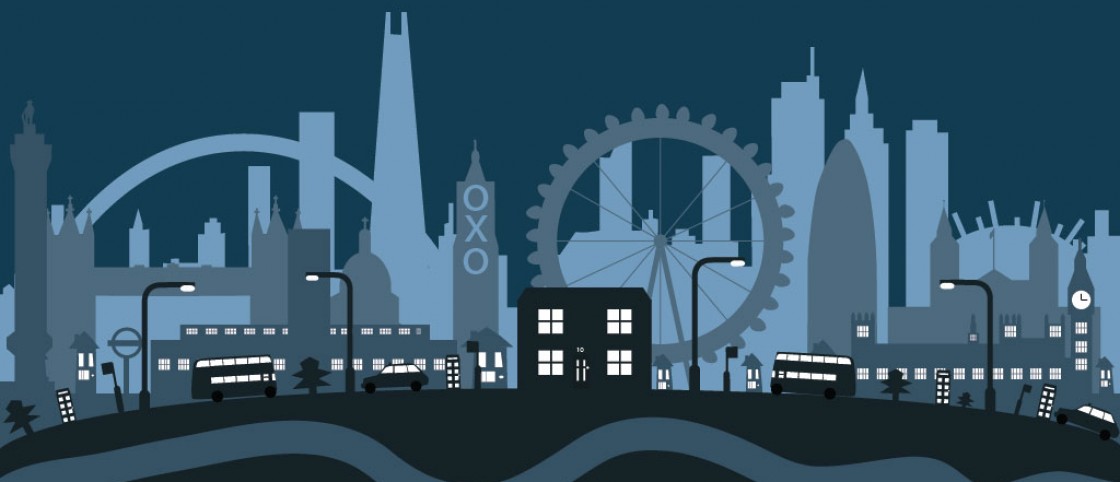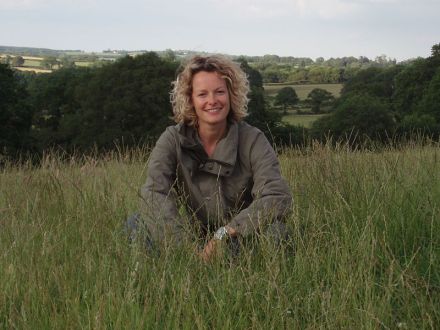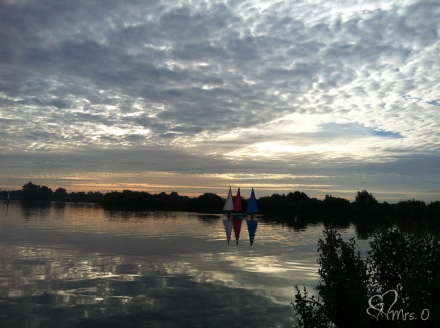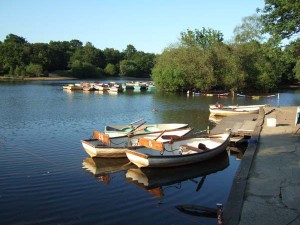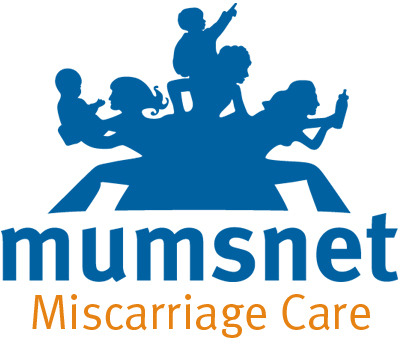Fancy a day out at the beach this summer? Here’s some great advice from Mumsnet Local Greenwich here. . .
lechyd Da! to Mumsnet Gwent and Kate Humble
This week, our South Wales Editor spent the day with Kate Humble at her working farm, Humble by Nature. After retiring from the head post at the RSPB in 2013, she’s thrown herself into life on the farm, and with her husband Ludo Graham, she’s created a truly special offering. Visitors are welcome to drop in for the day or to stay and learn about farm life. Even sleep over!
It’s another great feature, brought to you by Mumsnet Local.
Mumsnet Local serves 180 individual communities in the United Kingdom, bringing you the best local advice “for parents, by parents.” So check in with us for life at home or if you’re planning a trip. Our Local Editors are friendly and knowledgeable and happy to answer any questions.
Meeting the Purple Pumpkin
Sometimes you meet some really lovely people on the Internet. This week, whilst preparing for this week’s newsletter, I made a terrific find: thepurplepumpkinblog.co.uk!
Blogger Michelle Ordever has an amazing photographic and writing talent, making the Purple Pumpkin lovely to look at and a worthwhile read.
We’ve used her beautiful, serene depiction of Fairlop Waters sailing lake for this month’s Redbridge home page. It’s part of her blog entry in which she woke up at the crack of dawn to watch the historic Olympic torch relay leg at Fairlop. Do have a mini-scroll down memory lane: The Olympic-Torch at Fairlop Waters park.
Thanks Michelle! And we’ll definitely be checking back in with you.
Oh, Just the School Starting Age Issue. . .
Excerpted from the University of Cambridge article “School Starting Age: the Evidence“:
“Earlier this month the “Too Much, Too Soon” campaign made headlines with a letter calling for a change to the start age for formal learning in schools. Here, one of the signatories, Cambridge researcher David Whitebread, from the Faculty of Education, explains why children may need more time to develop before their formal education begins in earnest.”
In the interests of children’s academic achievements and their emotional well-being, the UK government should take this evidence seriously
– David Whitebread
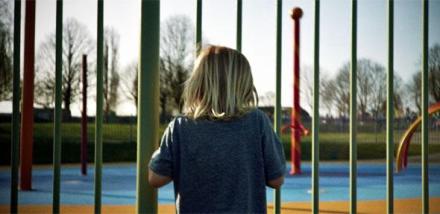
“Back to School”. Homepage banner image by Woodley Wonderworks via Flickr Credit: Nick Page from Flickr.
In England children now start formal schooling, and the formal teaching of literacy and numeracy at the age of four. However, the UK’s Department of Education states clearly that compulsory school age is five. Children born in the summer months, like mine, spend the entire first year at school in Reception class before they reach compulsory school age. Yes, she will be playing. But she will also start her journey in formal learning, in a formal setting, learning phonics and arithmetic, even ICT.
Am I happy about this? Not particularly, no. I am much happier to have her at home singing her ABCs, visiting the playground, playing with her sister, and freely using her imagination. At least, we have secured the consent of her school to allow her to attend part-time during the Reception year.
I have witnessed the Herculean efforts of the campaigners who head the Summer-born Campaign, giving advice to parents with similar concerns about deferring or delaying admission for their child to primary school. They do this day and night, answering queries that Local Authorities and the Department of Education will not. They help parents to exercise their rights under the law, to wait until their child is five to start formal education, in the Reception year. These parents are successful sometimes, but sadly, some–even those whose children were prematurely born or have developmental issues–are flatly and discompassionately denied. One can only guess that bureaucratic expediency is chosen over the welfare of these children. Or else what?
In our case, we are simply concerned that, but for a few weeks, our daughter would have started her journey in formal education next year. So we lose an entire year at home. We have been reassured by anecdotal evidence that she will cope, and because she’s bright and self-motivated, she will “do well.” Our response is, “Yes, that’s great. We agree. But we wanted that to start when she’s actually of compulsory school age.”

Read by Pre-School Platinum of YouTube: https://www.youtube.com/watch?v=B8fdu9PMgNo
There is a universe of common sense in the Charlie and Lola book, I am Too Absolutely Small to Go to School. In it, Charlie asks four-year old Lola, “Don’t you want to read words?” and Lola answers “I don’t need to read words and I’ve got all my books in my head. If I can’t remember, I can just make them up.” Lola eventually consents to go off to school, but on her terms. And the school depicted in Charlie and Lola is hardly one of ‘schooliforms’ and rules and formal lessons.
We understand that not all children have the supportive, loving and stimulating homes they so very much deserve, and that this is behind the impetus of the current government to consider the start of formal education at an even earlier age. But is starting formal education in the tender ages going to be the answer to Britain’s social problems? Because it does seem as if recent gestures by Education ministers are aimed at curing social problems rather than reforming the Education system.
And clearly, the research presented by Cambridge, states that the start of formal education, to promote educational goals, needs to go in the OTHER direction.
So here we are, stuck in a malfunctioning politico-educational system in which academics, educators, and parent-led groups are becoming advocates for childrens’ rights and doing battle against Education policy makers and politicians who can’t see the forest for the trees. As a reminder, the government’s obligations under the United Nations Convention on the Rights of the Child states that there is an “obligation to ensure that the child’s best interests are appropriately integrated and consistently applied in every action taken by a public institution.”
The Research and Political Action
“A recent letter signed by around 130 early childhood education experts, including Whitebread, published in the Daily Telegraph (11 Sept 2013) advocated an extension of informal, play-based pre-school provision and a delay to the start of formal ‘schooling’ in England from the current effective start until the age of seven (in line with a number of other European countries who currently have higher levels of academic achievement and child well-being).
We were curious about where the UK stands in relation to the rest of Europe on this matter and, indeed, how these children are faring in comparison with ours. Compulsory ages for the start of school throughout Europe from the National Foundation for Educational Research’s web site:
|
4 |
Northern Ireland |
|
5 |
Cyprus, England, Malta, Scotland, Wales |
|
6 |
Austria, Belgium, Croatia, Czech Republic, Denmark, France, Germany, Greece, Hungary, Iceland, Republic of Ireland, Italy, Liechtenstein, Luxembourg, Netherlands, Norway, Portugal, Romania, Slovakia, Slovenia, Spain, Switzerland, Turkey |
|
7 |
Bulgaria, Estonia, Finland, Latvia, Lithuania , Poland, Serbia, Sweden |
So have you seen now that the countries who start later have the best results from education?
Let’s use research—-our own and that of the experts–to help determine Education policy that’s in our childrens’ best interest. Let’s leave the anecdotal evidence to the chat boards.
Please read David Whitebread’s original article here.
Earlier this month the “Too Much, Too Soon” campaign made headlines with a letter calling for a change to the start age for formal learning in schools. Here, one of the signatories, Cambridge researcher David Whitebread, from the Faculty of Education, explains why children may need more time to develop before their formal education begins in earnest.
In the interests of children’s academic achievements and their emotional well-being, the UK government should take this evidence seriously
David Whitebread
– See more at: http://www.cam.ac.uk/research/discussion/school-starting-age-the-evidence#sthash.MpcyBeRB.dpuf
Allons Le Tour!
Cambridge / Londres
Stage 3 of this year’s Tour de France will speed through our streets on Monday, July 7th before whizzing off to France via air transport. We’d had a rather fanciful thought involving a tardis, though. . .
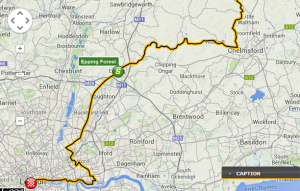
Full route details online at www.letour.fr
Beginning in Cambridge just after Noon, le Tour will arrive in Redbridge and Waltham Forest in the early afternoon, criss-crossing the boroughs on the way into Central London. The promotional caravan–get your free Tour gear–arrives in Epping New Road from approximately 1.05pm followed by the race at approximately 2.40pm. The route continues down Woodford New Road, through the Whipps Cross roundabout, and onto Lea Bridge Road into Leyton via Orient Way then on to Queen Elizabeth Olympic Park, through East London and into Westminster, where Stage 3 ends.
Best viewing points in the order that the race will reach them:
- Epping New Road (Roadside, E4)
- All Saints Church in Woodford Wells (Inmans Row, Woodford Green, Essex IG8 0NH) is opening its doors to the community for the duration of the event (café, toilet and TV screens) as well as family activities on the green.
- Whipps Cross roundabout—large television screen to watch the race, Waltham Forest council-run activities
- Lea Bridge Road (no facilities, roadside viewing)
- Leyton Green
- Baker’s Arms junction
If you’re watching from Epping New Road or Woodford New Road, be sure to check in at either of these spots:
- Woodford Wells Club in Monkhams Lane (IG8 ONL) is welcoming the community to bring picnics, make full use of the club’s facilities and its newly refurbished club bar.
- The Larder at Butler’s Retreat, 12 Rangers Road, Chingford, E4 7QH Click here for their menu.
Watching at Whipps Cross Roundabout or Lea Bridge Road?
 Walk down to the friendly Sir Alfred Hitchcock Pub and Restaurant (147 Whipps Cross Road, E11 1NP). Full facilities are available and the manager is preparing a warm welcome for racegoers, including a BBQ! Unless, of course, it rains. . . Do expect a lovely cream teas and the manager’s Tour specials–fish and chips, steak and ale pies. Full kids menu available.
Walk down to the friendly Sir Alfred Hitchcock Pub and Restaurant (147 Whipps Cross Road, E11 1NP). Full facilities are available and the manager is preparing a warm welcome for racegoers, including a BBQ! Unless, of course, it rains. . . Do expect a lovely cream teas and the manager’s Tour specials–fish and chips, steak and ale pies. Full kids menu available.
And if sitting in the afternoon sun leaves you needing a little peace and quiet, take a break and visit Hollow Ponds Boating Lake, row a boat or sit in a shady spot. Just down from the Sir Alfred and opposite. Snacks and drinks available at the outposts, minimal facilities.
A bit further afield, the Duke pub in Wanstead is super family-friendly and is the perfect spot to head to for an early supper after a full day. Plenty for the kids to do there.
Le Tour’s official web site is www.letour.fr.
Plan ahead and make it a great day out!
Check out our Mumsnet Local partner sites whoa re also hosting Le Tour 2014:
Looking for Forever Families
The London Borough of Barking and Dagenham Adoption Service are calling for potential adoptive parents from across Essex.
Thirty children are waiting to find a home and the Adoption Service is holding a number of informal open information sessions where you can meet members of the adoption team and an adoptive parent and have all of your questions answered.
The 30 children include siblings such as siblings, Sophia (7) and Eddie (5)* who are full siblings and are happy children. They are very close and enjoy playing together. They are normal kids who need a loving family.
*Names have been changed to protect the children’s identities.
Can you make a difference?
We need parents who are able to offer a child the love, care, time and understanding within a framework of boundaries and consistency to meet these children’s needs into adulthood and beyond.
There are many myths surrounding adoption; these information sessions provide an opportunity for you to find out the answers to any questions you may have. Successful adoptive parents will be on hand to give their points of view.
The upcoming event will be held on:
Saturday 5 July 2014, 2pm to 4pm, Broadway Theatre, Barking, IG11 7LS
For information about adoption or to reserve your place at this event please call 020 8227 5555. To apply or find out about future information events please visit www.lbbd.gov.uk/adoption
Subsequent events will be held:
Wednesday 10 September, 9.30am to 11.30am, Dagenham Library, 1 Church Elm Lane, Dagenham, RM10 9QS
Thursday 6 November, 6.30pm to 8.30pm, Relish Café, 2 Town Square, Barking, IG11 7NB
Thursday 4 December, 9.30am to 11.30am, Broadway Theatre, Barking, IG11 7LS
A Little Moomin Lovin’
Cherry-picking from the Guardian’s Culture section this morning reminded us of one of our favourite library finds.
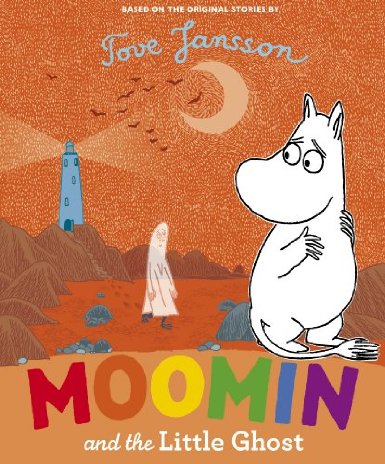
Tove Jansson was born in Helsingfors, Finland, in 1914. Her mother was a caricaturist who designed 165 of Finland’s stamps and her father was a sculptor. She studied painting in Finland, Sweden and France, and subsequently became a book illustrator. Her extraordinary illustrative style is seen as a design classic the world over. Originally written in Swedish, the Moomintroll books have been translated into 34 languages and adapted for television, film, radio and opera. Tove Jansson lived alone on a small island in the gulf of Finland, where most of her books were written. She died in 2001. (from Amazon.co.uk)
. . . just remembering the joy of reading words like ‘Moomintroll’ and ‘Moominmama’ with my children. And this one was useful as well since Moomin and his pal Snorkmaiden had to conquer their fear of ghosts during their holiday at the lighthouse–we’ve had discussions of crocodiles and monsters under the bed, so Moomin became a handly little hero for us.
Besides that, the illustrations are so very funny and endearing, odd but in a good way, as the Scandinavian imagination seems to produce. It’s good that trolls can be endearing, surely.
We were sad when Moomin finally went back to the library’s shelves and are searching for his further adventures!
Sadly, Chae Strathie did not choose any Moomin books in her “Top Ten Utterly Zingbobulous Nonsense Words in Childrens’ Books” list, but she found plenty of other goodies.
Imagine the Pasta-bilities!
Mumsnet’s Miscarriage Code of Care
This code was drawn up after extensive consultation with Mumsnetters, and professional and campaigning organisations working in this area of care. If implemented by NHS care providers, it could help to lessen the trauma of early pregnancy loss for parents.
1. Supportive staff
GPs, Early Pregnancy Assessment Unit (EPAU) and A&E staff should be trained in communication and listening skills (including things NOT to say to women who are miscarrying), and the psychological effects of miscarriage. Follow-up appointments and/or counselling for those who feel they need it should be routinely offered after miscarriage.
2. Access to scanning
Access to scanning facilities in the case of suspected miscarriage should be easier in cases where scanning is clinically indicated. This could mean Early Pregnancy Assessment Units (EPAUs) opening seven days a week and/or portable ultrasound and trained medical staff being available in A&E and gynaecological units. When women have miscarried at home and have experienced severe symptoms, they should be offered a scan to check that there are no ongoing complications. Where medical staff do not believe that a scan is clinically indicated, or that it would be unlikely to produce reliable results, this decision should be communicated to the patient with tact and understanding, and with a full explanation of the reasons.
3. Safe and appropriate places for treatment
Women undergoing miscarriage or suspected miscarriage should be separated from women having routine antenatal and postnatal care, or women terminating an unwanted pregnancy. Waiting times in confirmed as well as threatened pregnancy loss, but, in particular, for women who need surgery, should be kept to a minimum and not be spent in antenatal or labour ward settings.
4. Good information and effective treatment
All women experiencing miscarriage should receive clear and honest information, sympathetically delivered. Women should be given information about all the available management options – expectant, medical and surgical – and should be able, clinical considerations allowing, to choose the method of management that best suits their circumstances. Women miscarrying at home should be offered appropriate prescription pain relief. In the case of miscarriage occurring in hospital, doctors should discuss with the parents what they wish to happen to the fetus (i.e. it should not be disposed of routinely without prior consultation).
5. Joined-up care
Community midwife teams and GPs should be informed immediately when miscarriage has occurred, and subsequent bookings and scans cancelled, to avoid women who have miscarried being chased by HCPs for ‘missing’ pregnancy appointments. HCPs should be mindful of a woman’s previous miscarriage/s when assessing her needs during subsequent pregnancies, acknowledging any extra anxieties and dealing with them sympathetically.
Although this code is based mostly on the experience of Mumsnetters who have miscarried in-utero pregnancies pre-24 weeks, we think many of its points apply equally to women experiencing stillbirths and ectopic pregnancies.
The code relates directly to England and Wales, but many best practice guidelines can equally apply to Scotland.
Please join us in asking politicians to pledge to improve miscarriage care.
Cheers, Rio!

Behold the Caipirinha: A swirling of Cachaça, a liquor distilled from sugarcane, fresh lemons, and sugar.
Very soon, the pubs around London will be full of watchers of the Beautiful Game. And I will be having a Beautiful Drink.
I am missing my old ‘hood, just North of South Beach, Miami, and East of the mainland. Home to thousands of Brazilians, where I could get a fantastic piece of steak smeared with lime, olive oil and garlic, some form of cassava, and one of these lovelies pretty easily. . . the caipirinha.
They go down pretty easily, if memory serves me correctly. I think I will embark on a search for some good Cachaça in London. Would appreciate any tips.
And cheers to Rio. Here’s hoping the Brazilians get a decent shake out of lending their country to the world for a few weeks.
If you want to try making one yourself, I recommend Juliana Guimarães’s blog, “Brazil with Z.”
